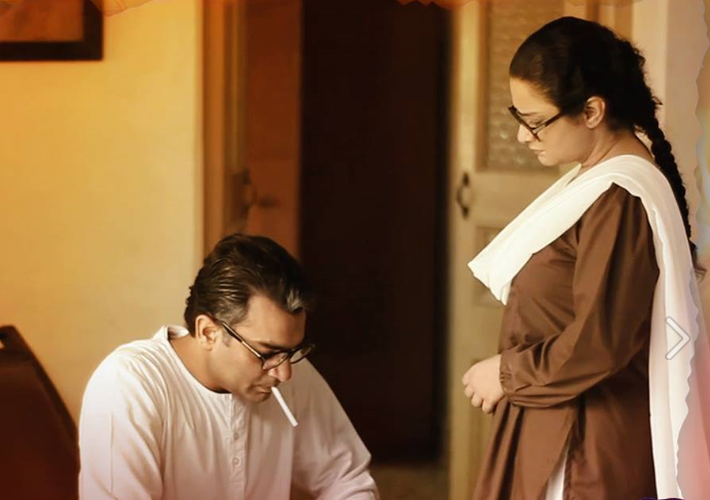|
Getting your Trinity Audio player ready...
|
Sarmad Khoosat, the Pakistani artist, scriptwriter, and filmmaker, has encountered the recurring sarcastic comment ‘Aur Bano Manto’ throughout his life due to his profound admiration for the legendary writer Saadat Hasan Manto (1912-1955). Despite his films being well-received globally, Sarmad Khoosat has faced criticism and earned accolades in equal measure.
Much like Saadat Hasan Manto tumultuous life, marked by societal backlash, Sarmad Khoosat has navigated the changing landscape of Pakistani content, gradually carving out a niche for himself. His notable achievement came with the directorial venture ‘Manto,’ capturing the essence of the iconic writer comprehensively.
In his early teens, Khoosat stumbled upon Manto’s works, amazed by the scandalous literature he found in Urdu. Raised in a relatively progressive household, Khoosat’s first encounter with Saadat Hasan Manto occurred during a period of displacement caused by a house fire. Despite this, he resonated deeply with Manto’s unfiltered writing.
For those unfamiliar, Manto lived between 1912 and 1955, initially in India and later in Pakistan after the 1947 partition. A rebel, journalist, Bollywood reporter, novelist, and fiction writer, Manto challenged societal norms, addressing issues of gender, religion, bias, and class with unfiltered candor.
While stories like ‘Khol Do,’ ‘Thanda Ghosth,’ and ‘Toba Tek Singh’ left a lasting impact on Khoosat, he kept his admiration for Manto discreet, only later discussing him in college.
In his television career, Khoosat initially engaged in sitcoms and humorous ads but eventually found an opportunity to celebrate Saadat Hasan Manto work on TV, adapting a story called ‘Harnaam Kaur.’ This led to a connection with Manto’s daughters, who became supporters of Khoosat’s Manto performances and encouraged his other works.
Reflecting on a time when the state censored literature, Khoosat emphasized the role of progressive writers as an escape from oppression. He acknowledged Manto’s audaciousness and its liberating effect in a culture marked by self-censorship.
Read More: Dusk News Showbiz
Asked if he sees ‘Mantoism’ in his other work, Khoosat noted that while not conscious, the sensibility of freedom is present in his creations. He pointed out that artists subconsciously absorb the sensibilities of those they admire.
Interestingly, Khoosat directed the 2011 hit serial ‘Humsafar,’ starring Fawad Khan and Mahira Khan, and went on to adapt works like ‘Chokher Bali’ and a play inspired by Madam Noor Jehan’s life.
In 2013, Khoosat’s film on Manto coincided with Indian filmmaker Nandita Das’s biopic ‘Manto’ starring Nawazuddin Siddiqui. The two directors met and discussed their work at a Rekhta event in Delhi.
With films like ‘Motorcycle Girl,’ ‘Zindagi Tamasha,’ ‘Kamli,’ and ‘Joyland,’ Khoosat has gained recognition globally. Despite self-doubt, he acknowledges a loyal audience for his work and expresses eagerness to explore dark comedy with an actress he hasn’t collaborated with in a while. Khoosat credits his intriguing journey and strengthened voice to the support of his audience and the influence of Manto.”

